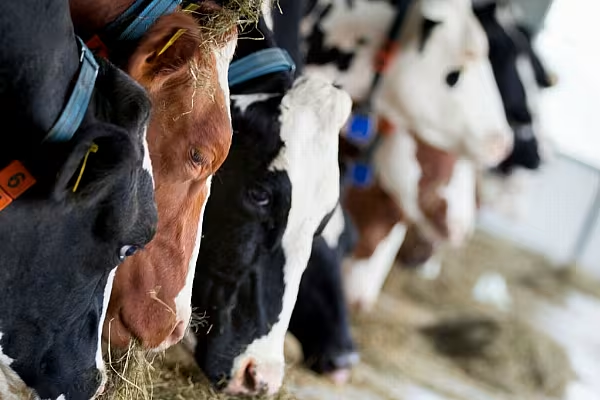Nearly 10% of dairy producers in the UK are likely to stop producing milk by 2025 with smaller producers affected the most by the current market situation, a new survey by the National Farmers Union (NFU) has unveiled.
The NFU’s Dairy Intentions Survey included around 600 UK dairy farmers.
Insufficient returns, volatile markets and the scale of on-farm investment are some of the reasons why Britain’s dairy farmers are reconsidering their future in the sector.
In addition to those planning to stop production altogether, another 23% said they were ‘unsure’ about continuing production beyond the next two years.
'Crisis Of Confidence'
According to NFU Dairy Board chair Michael Oakes, inflation and production costs are putting the long-term resilience of dairy farming “under threat”, leading to a “crisis of confidence” amongst British dairy farmers.
Smaller enterprises producing less than one million litres of milk per year are more likely to stop production before March 2025, compared to those producing higher volumes, the NFU added.
The latest figures from the ADHB show that there are around 7,500 dairy producers in Great Britain, which represents a decline of 4.8% compared to last year.
Other Findings
The survey also revealed that increases in input prices such as feed (84%), energy (83%), and fertiliser (74%) are the primary areas of concern among producers.
Over one-third (36%) of those ceasing production are doing so due to retirement, with almost a fifth (18%) handing over their farm to the next generation.
Over half (52%) of producers stopping production are unable to keep up with the scale of investment required for their enterprise to stay compliant, the NFU added.
Respondents also identified better access to labour as a key component, with almost three-quarters (74%) seeing it as a barrier to business growth.
Oakes added, "With increasing global demand for British dairy, we know that the long-term future is bright for our sector.
"To ensure we maximise this potential, it is imperative that the government continues to work with us to ensure we have the right environmental, regulatory and trade framework in place to support the production of high quality, nutritious and sustainable food."














